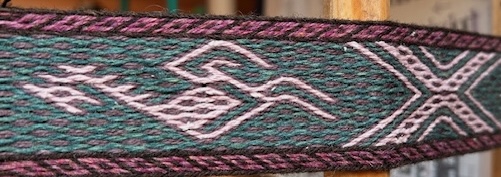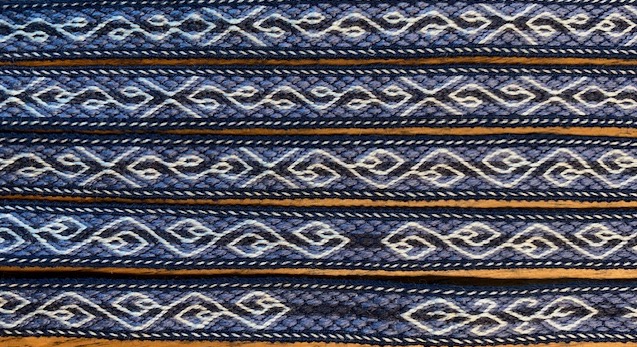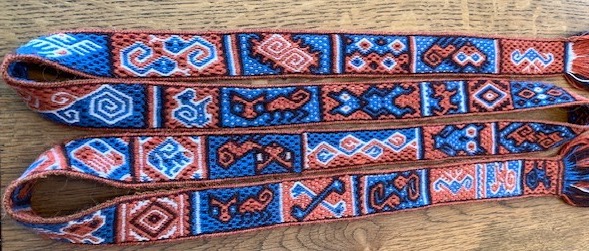Saga wool craft & Saga bead craft
A blog about tablet weaving, jewellery making and some other crafts.
https://www.instagram.com/saga.woolcraft
-
Since a long time I tend to draw much more patterns then I have the time to weave, so I will put some of them here, for you to try out. Here are some for 24 cards. Maybe I have…
-

A new belt and some new designs
I haven’t been weaving much lately, but I still draw new designs, which means I have too many new designs and not enough time to weave them. Well, I did try a few on this belt, but I am considering…
-

Started weaving again
I haven’t been weaving much lately, partly because I have a new hobby (making jewellery) and partly because I haven’t been inspired to weave (and partly since I was too tired going through chemo). But now I have the energy…
-

A new weave to embellish my viking caftan.
I have planned for a while to weave this band, in a reverse symmetric way, to put in front of my new caftan (with a rabbit skin collar). See below for belt and caftan.
-
more jewellery work and some weaving
As you may have noticed I started making jewellery, which means less time for my weaving. But I have one piece on the loom which I am quite happy with: Then, my jewellery work:
-

The 12 card weave
I have woven this narrow (about 1.5cm) band in silk to use as decoration for a viking dress. The first part of this weave is inspired by the Icelandic find below. My viking dress will look like something like this:…
-

A new green belt off the loom
This belt is to be used as decoration on a viking dress that I (hopefully) will sew. So I have been repeating several leaf motifs and also a “flower” motif. I couldn’t help myself and added a few animals as…
-
Drawing an old pattern
Somebody asked in a group on FB if someone had the pattern to a band available on Pinterest. It was clearly Sulawesi, so I offered to draw it. I havent woven it yet though, but I thought I can share…
-

The 4 colour pebble weave is off the loom
I finally finished this beast. It was much longer to weave compared to Sulawesi, also in part since I drew new designs all the time. Some photos below, and I will update the pebble weave page with the new designs.…
-

Continuing the pebble weave
I have had quite some other things happening (I finished a 3 year long education and right after I found out I have cancer, so quite a ride…). I have not had much time to weave (or to write), but…
Join 900+ subscribers
Stay in the loop with everything you need to know.